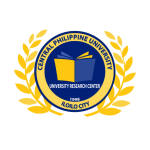- by Artchil B. Fernandez (completed July 2007)
ABSTRACT
The study was conducted to primarily determine the social and economic consequences of the MT Solar 1 oil spill in Nueva Valencia, Guimaras. This was a purely descriptive research and a one-shot survey design was utilized. There were 309 household heads that served as the study’s respondents. The Statistical Package for Social Science (SPSS) software was used to analyze the data.
Results of the study revealed that the majority of the respondents were males, Roman Catholics and fisher folks.They are in their middle ages, with elementary or high school level of education whose average household size is 4.73. Results also showed that after the oil spill, the proportion of the respondents who reported an increase on incidence of the top three illnesses, namely: pin-ot dughan, pangatol panit and lingin ulo, was found to be significant.The majority of the respondents reported that their personal recreational activities were affected by the oil spill but not the community cooperation and a significant increase of community conflict after the oil spill. Before the oil spill, fishing and related activities were the main source of income of a high majority of the household heads and their mean income was Php 9,661.41. After the oil spill, almost half of the respondents had no main source of income with bunker cleaning as the main source of income where their mean income is Php 2,602.51. The drop in mean income was statistically significant at 5% level and the drop was also significant for both the island and the mainland residents. The perceived serious personal problems of the household heads after the oil spill were: a) financial, b) livelihood and, c) food while the perceived serious problems of the family of the household heads after the oil spill were: a) food, b) financial, and c) livelihood. Serious problems of the community as perceived by the household heads after the oil spill were: a) livelihood, b) problems with barangay officials, and c) financial. It is worth noting that the perceived personal, family and community problems are the same, only that their rank varied in each category.
Perceived urgent needs of the family of the household heads after the oil spill were: a) food, b) financial, and c)livelihood. Urgent needs of the community as perceived by the family of the household heads after the oil spill were: a) livelihood, b) food, and c)financial. It is again worth noting that the perceived personal, family and community problems are the same, only that their rank varied in each category. Desired alternative livelihood of the respondents were: a) livestock/poultry, b) negosyo, and c) gardening project.
